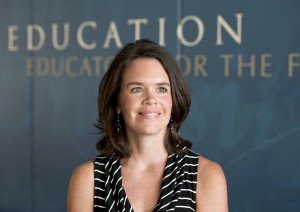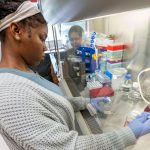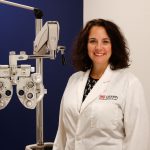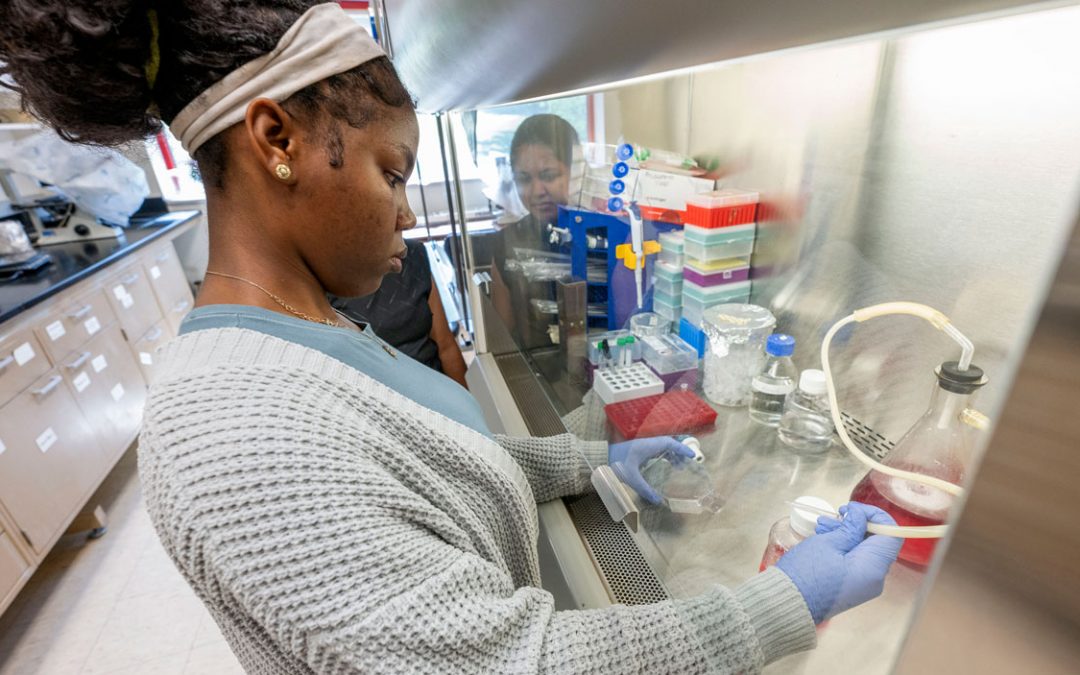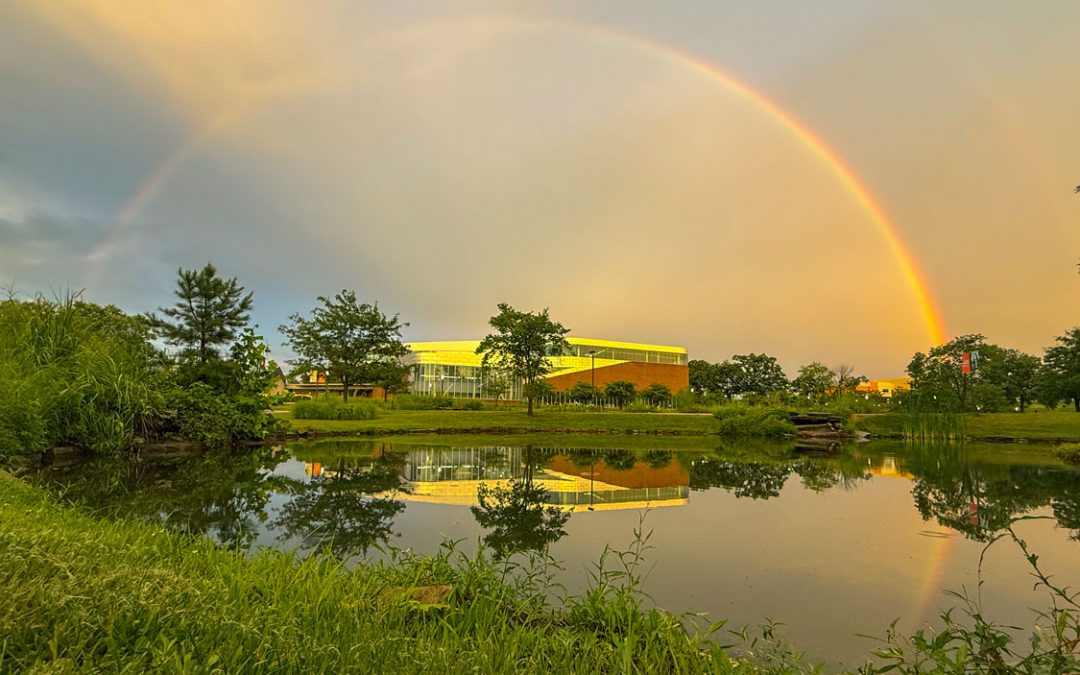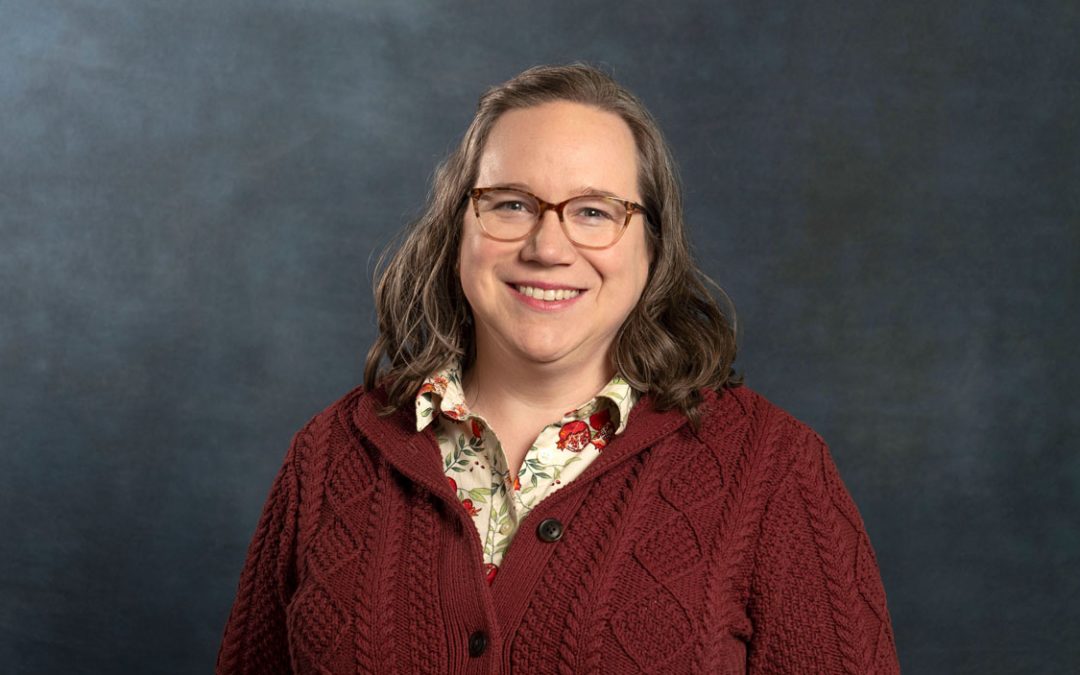As an educator, Rebecca Rogers knows good communication is the foundation to building a brighter future. And as the newly elected president of the St. Louis Public Schools Board of Education, Rogers, an associate professor of teaching and learning at the University of Missouri–St. Louis, plans to strengthen the lines of communication throughout the district.
Rogers, a 10-year resident of St. Louis, was elected to the SLPS Board of Education in 2009. In fact, she received the most votes of any candidate seeking election in any St. Louis race: 17,941.
In 2007, the Missouri Board of Education appointed a three-person special administrative board to oversee the district, whose accreditation had been pulled. As per Missouri state statute, the elected school board would still exist but with the primary purposes to audit the SAB’s operations and decisions and report to the public.
Now as the new elected board president, Rogers plans to work diligently over the next year to ensure a smooth transition in governance from the state appointed board to the elected school board.
UMSL News sat down with Rogers to discuss her new position and thoughts for the future of SLPS.
Why did you run in 2009 for the SLPS Board of Education?
I was asked by parents and teachers in St. Louis to consider running for a seat on the elected school board. Previously, I had been involved with the schools and community in various ways, and I think people had the sense that I might be a good school board member because of these experiences. My decision to run for the school board seemed like a natural extension of the work that I was already doing in my role as a faculty member and citizen.
What do you hope to accomplish as board president?
My short-term goal is to be a part of a transition in governance from the state-appointed board to an elected school board. Our elected school board has developed a transition report that outlines the conditions that are crucial for success in SLPS. The report also includes our vision for education at a school and district level. We are advocating for a return to the local school board 30 days prior to July 1, 2011, or whatever date the State Board of Education suggests to DESE. The report can be found on our web site at: http://www.slpsboe.org/.
How does the elected board work with the appointed board?
At times, the lines of communication between the two boards have been strained. Part of this was due to unclear parameters at the start of the state takeover about how the two boards would co-exist. However, when called upon, the elected school board has consulted with members of the SAB. We routinely meet with the superintendent. We have also diligently monitored decisions taken by the SAB and written resolutions that were distributed to the public. Moving forward, I am hopeful that our boards can work together to best serve the educational needs of the students and families in SLPS.
How have your experiences as an educator helped with your position on the board?
I am fortunate to be part of an amazing College of Education at UMSL. Faculty members in the college continually dedicate their time and resources into professional development, research and evaluation projects in SLPS. With all of these experiences and expertise, the college is a superb resource for the board as well as the district as a whole. As an educator, and specifically a teacher of teachers, I understand the complexities of teaching and learning and also the socio-political contexts of schools. I have more than a decade of experience educating teachers and extensive experience in conducting and interpreting research on learning processes, literacy education and parent involvement/family literacy. I think these experiences have been useful on the board. My service on the board has helped me to better understand the challenges and opportunities facing families, educators and policymakers. I think, ultimately, being a board member also helps me to be a better teacher educator as well.
Where would you like to see SLPS in five or 10 years?
I would like to see SLPS as a leader in preparing students for academic excellence and to be engaged, participants in our multiracial society. I would like to see the district earn accreditation by the state of Missouri, be governed by an elected school board and looked to, nationwide, as a model of urban education.
How can that be achieved?
The answers are certainly complex but I will offer a few ideas. We need to offer students a curriculum rich in history, science, math and literature. This curriculum should be explicitly based in the tenets of anti-oppressive education and be culturally responsive and multicultural. To have this kind of intellectually rich curriculum we need to treat teachers like professionals. They need to be paid competitive salaries that represent the value that our society places on education. They need the time and space to create curriculum, collaborate with colleagues and be involved in their school and surrounding community. I would like to see professional learning communities in each school that is teacher-led and emphasize teacher inquiry, dialogue and reflection. These reforms are led from the “bottom up,” by teachers and students and parents, rather than from the “top down” by government and industry. Quality educational reforms take time, professional expertise and resources. We need to reverse the damages caused from privatizing public education and work together to fully fund public education and advocate for public education to be treated as a right for all students in this country. St. Louis struggles with a long history of racism. And yet, my observation has been that in St. Louis, very few individuals and groups like to directly address racism and white privilege. Addressing racial justice is, I think, key to unlocking the wedge that holds us back as a community. A system-wide anti-racism focus could work wonders not only for the school district but for the city as a whole.
Before becoming a professor at UMSL, Rogers was a literacy specialist in a K-12 school in New York. Rogers earned her doctorate in literacy education from the University of Albany, State University of New York. She has written five research-based books and over 50 chapters and articles in the areas of literacy education, teacher preparation, critical literacy and family literacy studies.
More information:
http://coe.umsl.edu/web/faculty/teachlearn/rogersrl.cfm
http://www.slps.org/

